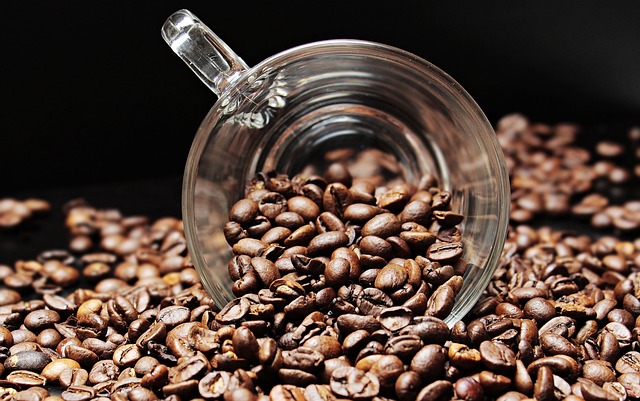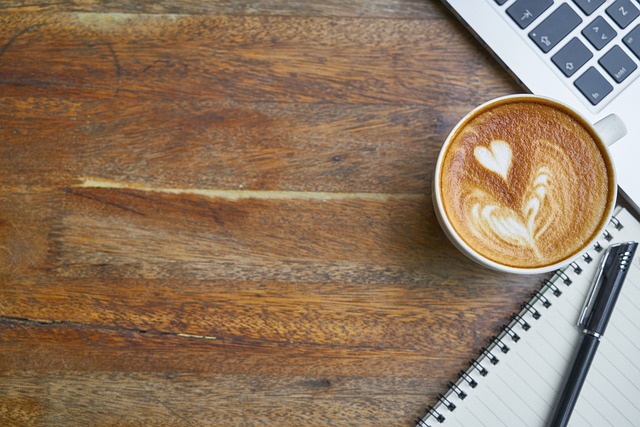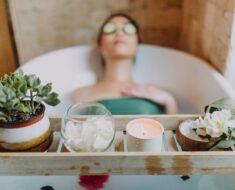Is drinking coffee good for your skin? Are you tired of battling dull and tired-looking skin every morning? Discover the secret elixir to radiant and youthful skin – coffee!
Dive into the caffeinated world of skincare as we unravel the wonders of how your daily cup of joe can be the key to a glowing complexion.
Say goodbye to skin woes and hello to a revitalized you!
Here, why is arabica good for skin?
Is drinking coffee good for your skin?
Well, yes, drinking coffee is good for your skin when you drink coffee moderately.
Thus, drinking coffee in moderation can have some potential benefits for your skin. Coffee is rich in antioxidants, such as chlorogenic acid, which can help protect your skin from damage caused by free radicals.

Additionally, caffeine in coffee can temporarily constrict blood vessels, reducing redness and inflammation, which may be helpful for conditions like rosacea.
However, excessive coffee consumption can dehydrate your skin due to its diuretic effect, potentially leading to dryness.
Furthermore, if you load your coffee with sugar and cream, it can have adverse effects on your skin due to increased sugar intake.
Therefore, moderate coffee consumption can support skin health, but hydration and a balanced diet are also crucial.
Now let’s see the coffee craze. Here coffee hacks for skin.
The Coffee Craze
The Popularity of Coffee
Coffee, one of the world’s most consumed beverages, has gained immense popularity over the years.
It’s more than just a drink; it’s a cultural phenomenon. But what about its impact on your skin?
The Nutritional Content
Before delving into the effects, let’s break down the nutritional content of coffee.
Coffee is a rich source of antioxidants, vitamins, and minerals, such as vitamin B2, B3, and potassium. These nutrients play a crucial role in skin health.
Coffee and Skin Health (3 benefits revealed)
Antioxidant Power
One of the key benefits of coffee for your skin is its high antioxidant content.
Antioxidants combat free radicals in your body, which can cause premature aging and skin damage. Coffee’s antioxidants may help reduce the signs of aging, such as fine lines and wrinkles.
Anti-Inflammatory Properties
Inflammation is a common culprit behind skin issues like redness and acne.
Coffee contains compounds that have anti-inflammatory properties. These properties may help soothe irritated skin and reduce redness.
Exfoliation
Coffee grounds are often used in skincare products as a natural exfoliant. They can help remove dead skin cells, leaving your skin looking fresh and radiant.

Caffeine and Your Skin
The Role of Caffeine
Caffeine, a natural stimulant found in coffee, can also benefit your skin.
It can constrict blood vessels, reducing redness and puffiness. This is why you’ll find caffeine in many eye creams designed to combat under-eye bags.
Cellulite Reduction
Some studies suggest that caffeine applied topically may reduce the appearance of cellulite. It’s believed to work by improving blood flow and breaking down fat cells.
Here decaf coffee benefits for skin?
Coffee and Acne
The Acne Connection
Acne is a common skin concern, and some individuals wonder if their coffee consumption could be contributing to breakouts. We’ll explore this topic in detail.
The Cortisol Factor
Coffee consumption can lead to an increase in cortisol, the stress hormone. Elevated cortisol levels have been associated with acne flare-ups in some individuals.
Individual Variations
It’s important to note that the relationship between coffee and acne can vary from person to person. While some may experience breakouts, others may not notice any adverse effects.

Moderation is Key
Finding the Balance
Like many things in life, moderation is key when it comes to coffee consumption and skin health. Excessive coffee intake can lead to dehydration, which can negatively impact your skin.
Can drinking coffee help clear skin?
Drinking coffee alone is not a direct solution for clearing skin, but it can indirectly contribute to better skin health. Coffee is rich in antioxidants that can combat free radicals, potentially reducing skin damage.
The caffeine in coffee can also temporarily constrict blood vessels, reducing redness and inflammation. However, excessive coffee consumption can lead to dehydration, potentially harming your skin.
Clear skin primarily depends on a balanced diet, proper hydration, and a consistent skincare routine.
While moderate coffee consumption may offer some benefits, it should not replace these fundamental practices for achieving and maintaining clear, healthy skin.
Here is coffee soap good for your skin?
Can drinking coffee make your skin glow?
Drinking coffee can give your skin a temporary glow due to its caffeine content.
Caffeine acts as a vasoconstrictor, temporarily narrowing blood vessels, which can reduce puffiness and make your skin appear more radiant.
Additionally, coffee is rich in antioxidants that may protect your skin from free radicals, contributing to a healthier complexion over time.
However, excessive coffee consumption can dehydrate your skin, leading to a dull appearance.
To maintain a lasting and healthy glow, it’s essential to balance coffee intake with adequate hydration, a well-rounded diet, and a skincare routine tailored to your skin type and needs.
Is drinking coffee good or bad for skin?
The impact of coffee on skin can vary depending on individual factors and consumption levels.
In moderation, coffee can offer some benefits for the skin due to its antioxidants, which combat free radicals, potentially reducing signs of aging.
Caffeine can temporarily improve skin tone by constricting blood vessels, reducing redness and puffiness. However, excessive coffee consumption can lead to dehydration, making skin appear dry or dull.
Additionally, if coffee is consumed with added sugar and cream, it can have adverse effects on skin health due to increased sugar intake.
Therefore, moderation is key to enjoying the potential benefits of coffee for your skin.
Which drinking coffee is best for skin?
The type of coffee that is best for your skin is typically plain, black coffee without added sugar or excessive cream.
This minimizes the potential negative effects of added sugars on skin health. Opt for high-quality coffee beans, preferably organic, as they may contain fewer pesticides and contaminants that could potentially harm the skin.
Additionally, consider brewing methods like drip or pour-over, which filter out more impurities compared to methods like espresso.
Ultimately, the key is moderation. Enjoying a cup or two of plain, black coffee per day, alongside a balanced diet and proper hydration, can offer potential benefits for your skin without the downsides of excessive additives.
Here, baking soda and coffee for skin?
FAQs
Can I use coffee grounds as a natural exfoliant?
Yes, coffee grounds can be an effective natural exfoliant. Just be gentle when applying them to avoid any skin irritation.
Will drinking coffee give me clear skin?
While coffee may have some skin benefits, clear skin is influenced by various factors, including genetics and skincare habits. Don’t rely solely on coffee for clear skin.
How much coffee is considered excessive?
Excessive coffee consumption varies from person to person. As a general guideline, limit your daily caffeine intake to around 400 milligrams, roughly equivalent to four cups of brewed coffee.
Can coffee worsen existing skin conditions like eczema?
For some individuals, the caffeine in coffee can exacerbate skin conditions like eczema. If you notice a negative effect, consider reducing your coffee consumption.
Are there any skincare products with coffee as an ingredient?
Yes, many skincare products incorporate coffee as an ingredient, such as exfoliating scrubs and eye creams. These products harness coffee’s potential benefits for the skin.
Conclusion
In conclusion, coffee can have both positive and negative effects on your skin. Its antioxidant properties, anti-inflammatory effects, and potential benefits in reducing cellulite make it an interesting addition to your skincare routine.
However, excessive coffee consumption may lead to increased stress levels and dehydration, potentially causing skin issues.
Remember, what works for one person may not work for another, so pay attention to your body’s signals.
If you’re a coffee lover, enjoy your daily cup in moderation, and always prioritize a well-balanced diet and skincare routine for healthy, glowing skin.






